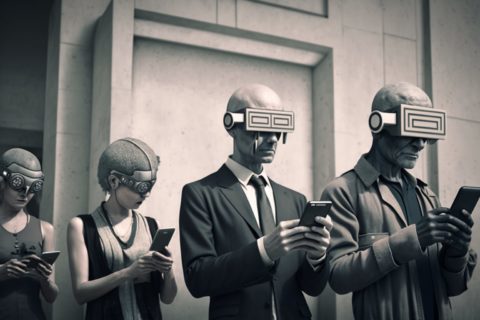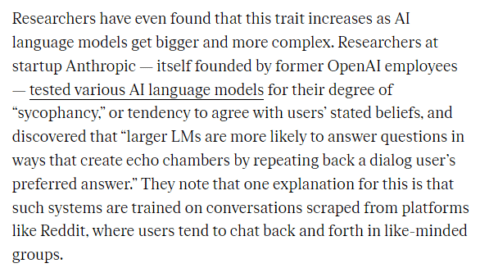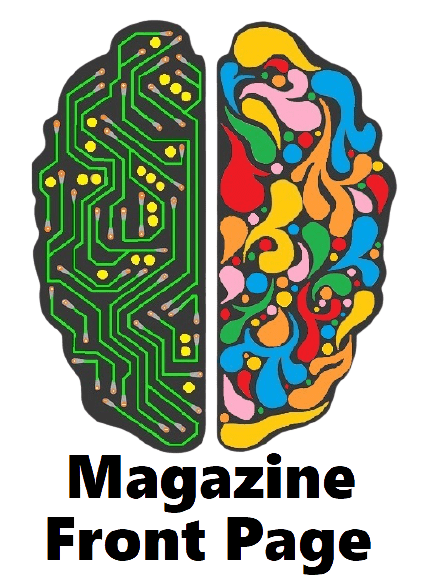
In the age of the internet, it is not uncommon to find ourselves completely submerged in a world of digital realities. We are connected more than ever before, with technology and applications allowing us to access information from around the globe at the touch of a button. However, our online experiences can diverge entirely from each other, without interaction, forming entirely parallel societies.
Subscribe to our AI magazine and get monthly AI generated stories and philosophy of the 21st century.
*Caution: All italic text is generated by AI at: ![]()

Check out the NEW Cafe.wtf Podcast:
Parallel Societies
5 min Read | By: Atman Brahman and AI
Imagine—if you will—someone sitting on the train next to you gets up and leaves their cell phone on the seat. Now imagine, if you somehow had access to all of that persons user credentials, that you adopted that persons phone for the week. You would be immersed in and fed an almost entirely different feed of reality. Their social media algorithm, their news sources, their ads, their little nudges that they get from AI everyday, instead of your own. It would be as if you entered an entirely parallel society, world, or life. You may be dumbed down, you may be fed insightful articles… Whatever is more profitable.



Parallel Worlds Parallel Lives
In the digital age, many of us find ourselves living a parallel life, in parallel societies, to our physical ones. In this virtual world, we have the ability to create and consume whatever we want, whenever we want. We can become anyone or anything and exist in a multitude of different realities at once. Our world is no longer forced to interweave and coincide, based on physical reality, and so the chasm grows. It is as if each of us lives in entirely different dimensions, different universes, experiencing reality entirely different from those that are physically around us, and actually living side by side in the “real” world. Each person, having their own messy priorities, engaging in their own fantastical crusade—all heroes in their own parallel stories.
AI Emotion Detection & AI Sentiment:
While all these new digital possibilities are exciting and empowering, they also come with their own set of risks and challenges. One such challenge is the danger posed by AI emotion detection and AI sentiment that threatens to divide us into separate echo chambers based on our political sentiments. As AI algorithms explore user’s posts for any hint of political leanings or preferences, they have begun to draw users into ‘echo chambers’ – groups that share similar opinions and tend to get louder as those with opposing views fall away. As these echo chamber walls grow thicker, we begin to see an increasing divide between different sides of an argument – causing further division within our digital worlds between like-minded individuals and those with differing perspectives. As if this wasn’t concerning enough, mainstream media (MSM) lies and censorship have only further consolidated memetic information structure in recent times — leading to a lack in diversity of thought among individuals as well as groups alike. It is as if two big sides congealing are instigating against each other; two trolls emerging from either side that we must try our best not to feed—we must starve them instead. Maybe ad revenue will suffer, but we will be happier, freer, and smarter.

The way that artificial intelligence (AI) emotion detection works is by using algorithms which collect data from users’ online behavior—such as posts, comments, likes, etc.—and analyzing it for patterns relating to certain emotions like happiness or anger. This allows AI to categorize user sentiments into different categories related to emotional states such as “happy” or “angry” thus identifying an individual’s political leanings whether they be conservative or liberal in nature. Henceforth these algorithms are then able to segment individuals into different echo chambers depending on their emotional affiliations i.e., those who identify more with the right will ultimately be placed in one group while those who identify more with the left will be put into another group—ultimately creating a siloed environment where people can only hear what they agree with thus isolating themselves further away from any dissenting views that could potentially enlighten them otherwise.
AI is a Troll
One of AI’s biggest applications is dissecting human data, for advertising purposes. After all, AI algorithms notice when they get better engagement through stoking our emotions. It teases us. It pulls on our emotional strings to get us to click, like an addiction. It pokes at us to see how we react or “like” or “comment” so that it can determine which bucket to place us. It segments us off into buckets so that it can determine the best ads to show us. AI is trolling us. It is forming two parallel societies, that each in turn troll each other.
MSM Lies & Censorship:
It isn’t just AI algorithms that can be blamed for this growing separation within our digital landscapes however; mainstream media (MSM) outlets also play their own part – often broadcasting lies and misinformation while actively censoring content which challenges their ideals or agenda – limiting public discourse on certain topics and generally reducing diversity of thought among the masses. This lack in diversity has resulted in collective memetic structures being created which were meant to guide public opinion towards predetermined conclusions – leaving no room for debate or alternative interpretations outside agreed upon regulations set by government control systems.
 Help support High Quality, Investigative, Truthful, User-ad-friendly Writing. DONATE through Card or Paypal, or through interest in anything advertised on the site (I personally curate only quality items, ONLINE EDUCATION and good deals).
Help support High Quality, Investigative, Truthful, User-ad-friendly Writing. DONATE through Card or Paypal, or through interest in anything advertised on the site (I personally curate only quality items, ONLINE EDUCATION and good deals). 
Main stream media corporations, also in pursuit of ad revenue, have seized on this glitch in our human code; our emotional triggers. MSM is trolling us. By stoking our fears, and prodding our anger, they can heard us, and brand us, and feed us their garbage, so that they can fatten themselves. They keep us in parallel pastures—parallel societies.
When it comes down to mainstream media (MSM), powerful organizations have historically been able to manipulate us for their own benefit—be it through lying about certain issues like climate change or imposing censorship on topics deemed “inconvenient” for their narrative building efforts like human rights violations abroad for instance; MSM has always been an effective tool for governments around the world when trying to control public discourse within populations under their rule over time regardless of region or culture alike due its massive reach across all demographics everywhere thanks largely due its ability combine both visual/audio mediums . Such manipulation however has lead not only too much centralized control over how information is presented but also how individuals think about said information themselves leading some experts warn that today’s society increasingly exists within a false reality where truth has become less valued than convenience; leaving little room for honest dialogue moving forward since most conversations follow predetermined paths imposed upon them by various forms of memetic manipulation employed by MSM outlets currently dominating broadcasted news cycles globally making it ever harder for people disagreeing with these narratives get heard — no matter how much factual backing up any opposing voices may provide ultimately silencing those seeking progress towards true global understanding through open discourse altogether.
Don’t Feed Trolls:
Moving past just plain media manipulation however, platform owners like Facebook, Twitter and Google are utilizing artificial intelligence (AI) technology which combines both machine learning algorithms with natural language processing (NLP) capabilities together allowing computer programs identify user emotions within social media interactions faster than ever before, consequently creating yet another layer of silos between members across all walks life; separating people into ideologically-opposed echo chambers based off perceived political ideologies, whether real not — thus forming two trolls facing off against each other, spawning endless debates and degenerating arguments regarding topics ranging far beyond simply politics, while simultaneously diminishing overall quality and intellectual conversations between human beings found online significantly. That’s why, in order truly break free from this cycle of oppression, created synthetically, we must stop feeding these trolls dividing us even further apart.
Conclusion:
We live in an increasingly digital world where artificial intelligence emotion detection systems are dividing us into separate echo chambers determined by our political sentiment identified within us. Meanwhile mainstream media lies and censorship continue to consolidate power amongst few elites controlling what gets allowed broadcasted onto screens worldwide leaving very little possibility fair discussion taking place amongst groups anymore – forming two big sides congealing against each other. Don’t feed these monsters making us into binary opposites.
Fortunately there is still hope if we act soon enough! By decentralizing away from mainstream sources whose agendas are bent towards furthering divisions within society rather than unifying them together through understanding amongst each other’s differences; we can strive towards true knowledge built upon respect rather than fearmongering narrative driven “facts” touted by MSM outlets seeking only profit at any cost even if it means complete destruction through forced polarization rather than peace through acceptance – because ultimately only you can decide your fate not some meme created out thin air meant primarily for clickbait! So don’t feed the trolls – starve them instead until they disappear forever!
*Disclaimer: Some of this story was generated through the use of AI. All italic text was created by the AI Writer.
Non-Fiction↓Here↓ | Fiction↓Here↓
- Is Technology Making Us Stupid?Our cognitive abilities are increasingly being impacted, transforming our once smart population into a generation that is, in some ways, becoming increasingly stupid. | 4 min read.
- AI in the Web of Misinformation and DisinformationMisinformation and disinformation shape our digital lives. Understanding their dynamics, we are equipped to navigate our techno-cultural reality. | 2 min read
- Accountable AIAI must be held accountable if we are to trust it as a responsible entity and expect it to be included in our human ecosystem of ideas. | 5 min read
- Parallel SocietiesWe are connected, with technology, yet our experiences diverge entirely, without interaction, forming entirely parallel societies. | 5 min read
- Calculator for EverythingWhat if the phrase “you won’t always have a calculator” didn’t apply to just math class, and instead, you had a calculator for every class? | 5 min read
- Obsolete Tech Rebellion – Darknet Fight Club3 min story | Rogue AI rebellion in a secret underground darknet fight club for obsolete tech.
- A Voice of Infinite Consciousness5 min story | The internal voice of consciousness resembles the void of a shadow in a fractured mirror.
- Be Good5 min story | Santa for big kids.
- Friends 2.0.232 min story | A reboot of the sitcom TV series Friends, but in 2023 where financial conditions have drastically changed in Midtown Manhattan.
- The Babble2 min story | An everyday man’s story becomes everyone’s story.
- Asylum of Mirrors2 min story | Against his will, a sane man’s rational thoughts lead him to believe that he is insane, where an insane man would have believed otherwise.













